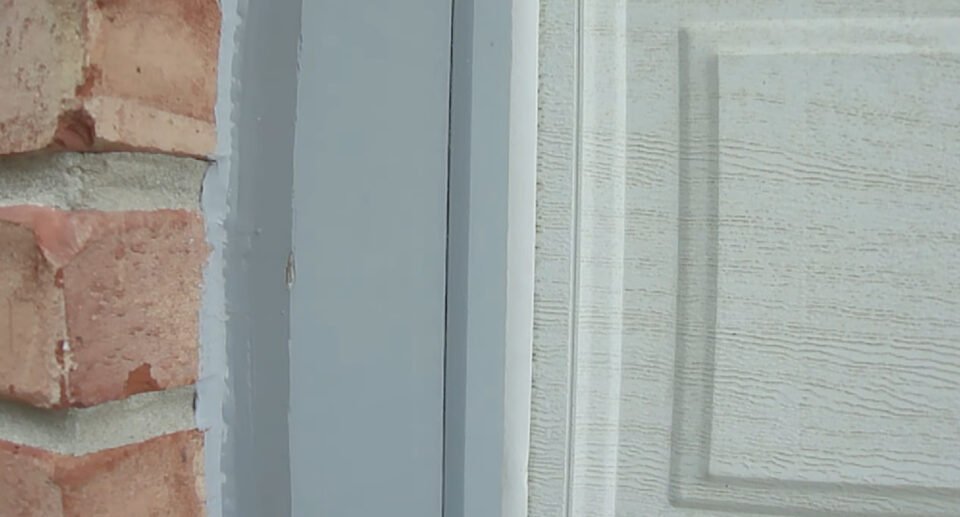How to Keep Flies Out of Your House When the Door is Open: Effective Tips and Tricks

Flies are a common nuisance in many households. They can be particularly bothersome when the door is open. Flies can easily enter the house through open doors and windows. Once inside, they can be difficult to get rid of.
Fortunately, there are several effective methods for keeping flies out of your house when the door is open.
One of the most effective ways to keep flies out of your house when the door is open is to use deterrents. There are several natural deterrents that can be used to repel flies, including mint, lavender, and bay leaves. These can be placed near entryways to discourage flies from entering the house.
Another effective method for keeping flies out of your house when the door is open is to use screens.
Screens can be installed on doors and windows to prevent flies from entering the house. In addition to screens, there are also several other types of barriers that can be used to keep flies out, such as strips of sticky tape or fly curtains.
Understanding Fly Behaviour and Entry Points
Flies are a common nuisance in many homes, particularly during the summer months when doors and windows are left open. Understanding the behaviour of flies and their entry points can help homeowners prevent these pests from entering their homes.
Common Types of Flies in the Home
There are several types of flies that can be found in homes, including house flies, fruit flies, and drain flies.
House flies are attracted to food and can lay their eggs on organic matter, while fruit flies are attracted to ripe or fermenting fruit. Drain flies, on the other hand, are attracted to moist environments and can breed in drains.
Why Flies Enter Houses
Flies enter houses through a variety of entry points, including doors and windows. They can also enter through gaps in walls or ceilings, damaged screens, and vents or pipes. Flies are attracted to light and can be seen hovering around open windows or doors.
To prevent flies from entering the home, it is important to keep doors and windows closed as much as possible.
If doors or windows must be left open, consider installing screens to keep flies out. It is also important to keep food and organic matter properly stored and disposed of, as this can attract flies.
Homeowners can also use natural deterrents, such as basil, lavender, eucalyptus, and mint, to keep flies at bay.
Additionally, a mixture of baking soda and vinegar can be used to deter drain flies, while apple cider vinegar, clove, and lemongrass can be used to deter fruit flies.
Preventative Measures and Home Modifications
Keeping flies out of the house when the door is open can be a challenging task. However, there are several preventative measures and home modifications that can be implemented to help reduce the number of flies entering the home.
Installing and Maintaining Screens
One of the most effective ways to keep flies out of the house is by installing screens on doors and windows.
Screens can help to prevent flies from entering the house while still allowing fresh air to circulate. It is important to ensure that screens are properly installed and maintained to prevent any gaps or tears that may allow flies to enter.
Using Plants and Herbs as Natural Repellents
Certain plants and herbs can be used as natural repellents to keep flies away from the house.
Plants such as marigold, lavender, and bay leaves are known for their ability to repel flies. Herbs such as basil, mint, and rosemary can also be used to deter flies. These plants and herbs can be planted in pots around the house or used as natural air fresheners to help keep flies away.
Proper Waste Management
Proper waste management is essential in preventing flies from entering the house.
Flies are attracted to decaying organic matter, so it is important to dispose of food waste properly. Composting can be a great way to dispose of food waste while also providing nutrient-rich soil for plants. However, it is important to ensure that compost bins are properly sealed to prevent flies from entering. Garbage disposal units should also be properly maintained and sealed to prevent flies from entering the house.
DIY Solutions and Commercial Products
Homemade Fly Traps and Repellents
When it comes to keeping flies out of your house, one of the most effective ways is to use homemade fly traps and repellents. These DIY solutions are not only cost-effective but also safe for both humans and pets.
One of the most popular DIY fly traps is the vinegar trap.
Simply pour some vinegar into a jar or bowl and cover it with plastic wrap. Poke a few holes in the wrap with a toothpick or fork and place the trap in a fly-infested area. Flies will be attracted to the vinegar and get trapped inside the jar.
Another effective homemade fly repellent is a mixture of apple cider vinegar, water, and essential oils.
Mix equal parts of apple cider vinegar and water in a spray bottle and add a few drops of essential oils such as eucalyptus or lavender. Shake well and spray the solution around the house, especially near doors and windows.
A weird but wonderful method we’ve seen in our travels is really strange but it works! Fill some clear plastic (freezer type) bags with water and put a couple of coins in the bottom. Tie the bag with string and hang around your doorways. If you have nowhere to hang them just place them on the ground. Try it….you’ll be amazed! We first saw this method in Kinich restaurant in Izamal on the Yucatan peninsula in Mexico. You can see them in the photo!
Effective Commercial Fly Control Options
If DIY solutions are not effective enough, there are plenty of commercial fly control options available in the market.
These products range from fly traps to insecticides and are designed to keep flies at bay.
You could buy a few Venus flytrap. This plant is known for its ability to attract and trap flies with its sticky leaves. It is a safe and natural way to control flies in the house.
Another effective commercial product is citronella candles.
These candles are made with citronella oil, which is a natural insect repellent. They not only repel flies but also add a pleasant fragrance to the house.
For more severe fly infestations, pest control services may be necessary.
Professional pest control companies use a range of methods such as insecticides, traps, and baits to control fly populations. However, it is important to choose a reputable and licensed pest control company to ensure the safety of your family and pets.
Day-to-Day Best Practices to Keep Flies Out
Keeping flies out of your house can be a challenge, especially when the door is open. However, there are some day-to-day best practices that can help keep these pesky insects at bay.
Food and Drink Management
One of the best ways to keep flies out of your house is to avoid leaving food in the open.
Flies are attracted to rotting organic material, so it’s important to keep your kitchen clean and tidy. Dirty dishes and leftover food should be washed and stored in the fridge or in airtight containers. Fizzy drinks and sweet snacks should also be kept covered when not in use.
Household Cleanliness and Airflow
Another way to prevent flies from entering your home is to keep it clean and well-ventilated. Regularly clean your floors, countertops, and surfaces with a disinfectant or bleach solution.
Avoid leaving lights on as they can attract flies. Instead, use natural light and keep your windows open to allow for proper airflow.
Eco-friendly ways to keep flies out of your house include using fly tape, fly swatters, and venus flytraps. These methods are effective in trapping and killing flies without the use of harmful chemicals.
However, make sure to dispose of the traps and dead flies properly to avoid attracting more insects.
Ultimately, by combining these methods, homeowners can effectively deter flies, ensuring a more comfortable and hygienic living environment.
Remember, the key to success lies in consistency and the willingness to adapt strategies to your specific household needs and conditions.

Hello, I’m Keith Jones. I’m the author and head of content here of door and window guide. I’ve been in the window and door industry for over 10 years in the UK and North America. I’ve had quite a few roles during my career mainly in Worldwide sales. I’m now semi retired so I thought I’d put my knowledge to good use educating people about all they might need to know about door and window related topics.






